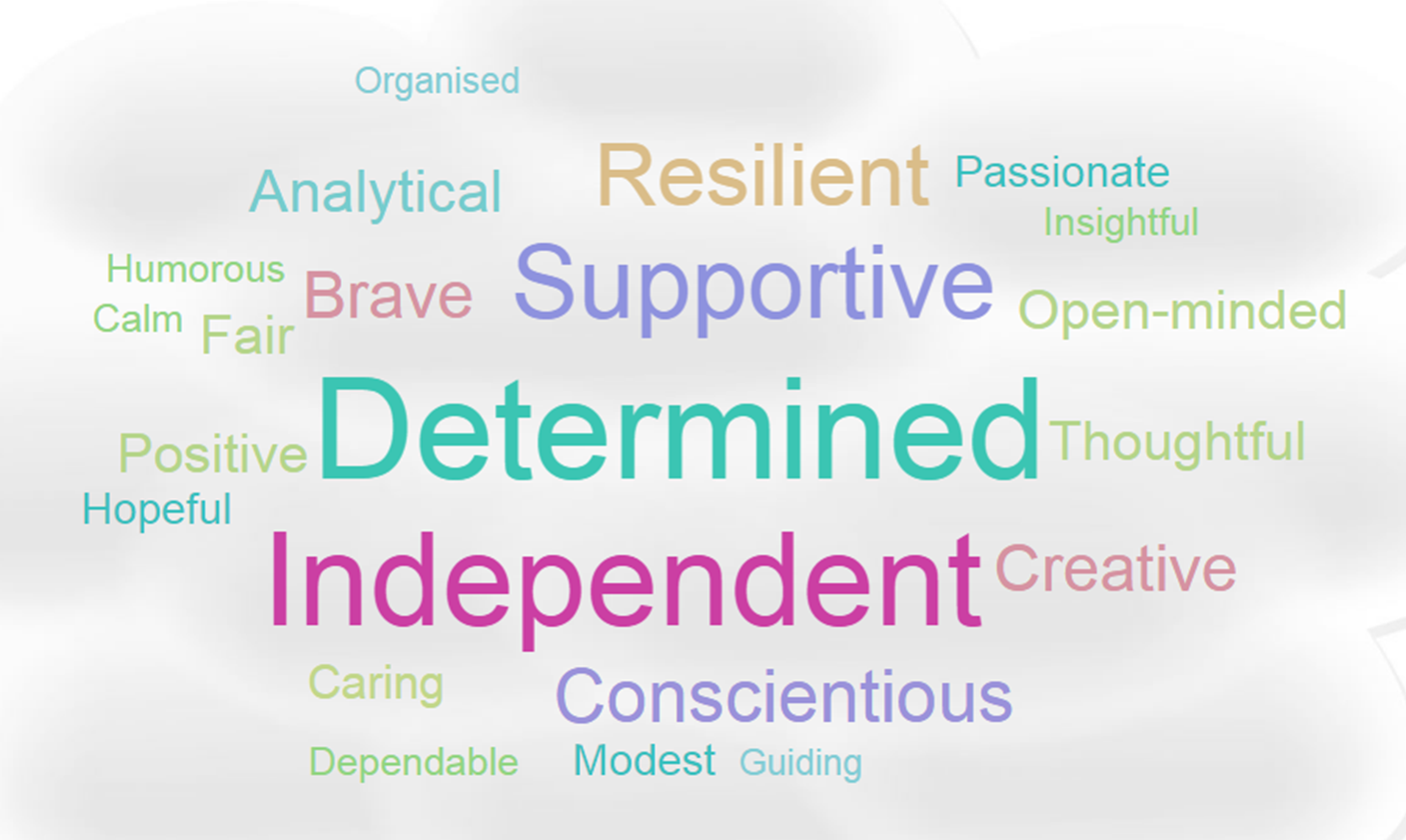Self-Concept: Definition, Examples, & Psychology TheoriesWhat is the self-concept? Where does it come from and what are the different pieces of self-concept, according to psychological theories? Find the answers here.
*This page may include affiliate links; that means I earn from qualifying purchases of products.
What Is Self-Concept? (A Definition)Self-concept is often defined as the image we have of our bodies, capabilities, impressions, etc.... (Bailey, 2003). But let's break the definition of self-concept down a bit more to understand it better. Some have suggested that self-concept involves a variety of different things we know about ourselves. So our self-concept may include knowing our material self, interpersonal self, and intrapersonal self (Epstein, 1973).
At its most basic, self-concept is the answer we give when asked the question "Who am I?" And of course, that answer includes multiple parts. ✓ Before we dive deeper into self-concept, we thought you might also be interested in taking our well-being quiz to learn more about your personal well-being. ✓ Or, if you're a well-being entrepreneur or coach, download our Wellness Business Growth eBook to get expert tips, tools, and resources to share with your audience. Are You a Therapist, Coach, or Wellness Entrepreneur?
Grab Our Free eBook to Learn How to
|
|
In a past article, I wrote about my experience asking others to report on my strengths. It was actually really interesting to see how some descriptions of myself were the same as theirs, but others were not. Here, you can see a world cloud of often my friends and family used a particular word to describe me.
|
I tend to see myself as a creative, independent, resilient, and positive person, but I didn't see myself as especially supportive. And the most common thing people said about me was I am determined. I agree that this describes me, but I never realized that this was such a big part of how others see me.
Doing reflections on how you see yourself and then asking others to provide feedback can really open the door to learning new things about yourself. So I definitely recommend giving it a try.
Doing reflections on how you see yourself and then asking others to provide feedback can really open the door to learning new things about yourself. So I definitely recommend giving it a try.
Activities for Learning More About Your Self-Concept
In addition to the exercise above, there are other techniques you can use to learn more about your self-concept. To gain more awareness about yourself, consider trying out these activities.
- What are your strengths? In this activity, you'll explore your strengths and how to make use of them.
- Best Self Activity. In this activity, you'll explore your best possible self (or your ideal self).
- Positive qualities. In this activity, you'll discover your positive qualities and attributes.
Articles for Learning More About Your Self-Concept
Need some more help learning about self-concept? These articles may be helpful.
- Self-Awareness: How to Be More Self-Aware
- Introspection: Definition (in Psychology), Examples, and Questions
- "Who Am I?" + Other Questions to Know Yourself Better
- Be Authentic: 19 Ways To Be Your Authentic Self
- Knowing Your Worth: How to Boost Self-Worth and Self-Confidence
- Self-Reflection: Definition and How to Self-Reflect
- Self-Affirmations: Definition, 195 Examples, & Lists
- Self-Assessment: Definition, Explanation, & Tips
- Self-Knowledge: Definition, Examples, & Benefits
Books Related to Self-Concept
If you’d like to keep learning more about self-concept, here are a few books that you might be interested in.
Final Thoughts on Self-Concept
Our self-concept is an important guiding principle that helps us navigate the world and understand our role in it. Parts of our self-concept may be good or not-so-good for our well-being. That's why learning more about our own self-concept may be beneficial.
Don't Forget to Grab Our Free eBook to Learn How to
Grow Your Wellness Business Exponentially!
References
- Bailey 2nd, J. A. (2003). Self-image, self-concept, and self-identity revisited. Journal of the National Medical Association, 95(5), 383.
- Boyatzis, R. E., & Akrivou, K. (2006). The ideal self as the driver of intentional change. Journal of management development.
- Epstein, S. (1973). The self-concept revisited: Or a theory of a theory. American psychologist, 28(5), 404.
- International Personality Item Pool (IPIP). ipip.ori.org.
- Johnson, E. L. (1967). Existentialism, Self Theory and the Existential Self. The Personnel and Guidance Journal, 46(1), 53-58.
- Tafarodi, R. W., & Swann Jr, W. B. (2001). Two-dimensional self-esteem: Theory and measurement. Personality and individual Differences, 31(5), 653-673.
- Zentner, M., & Renaud, O. (2007). Origins of adolescents' ideal self: An intergenerational perspective. Journal of personality and social psychology, 92(3), 557
Are You a Therapist, Coach, or Wellness Entrepreneur?





